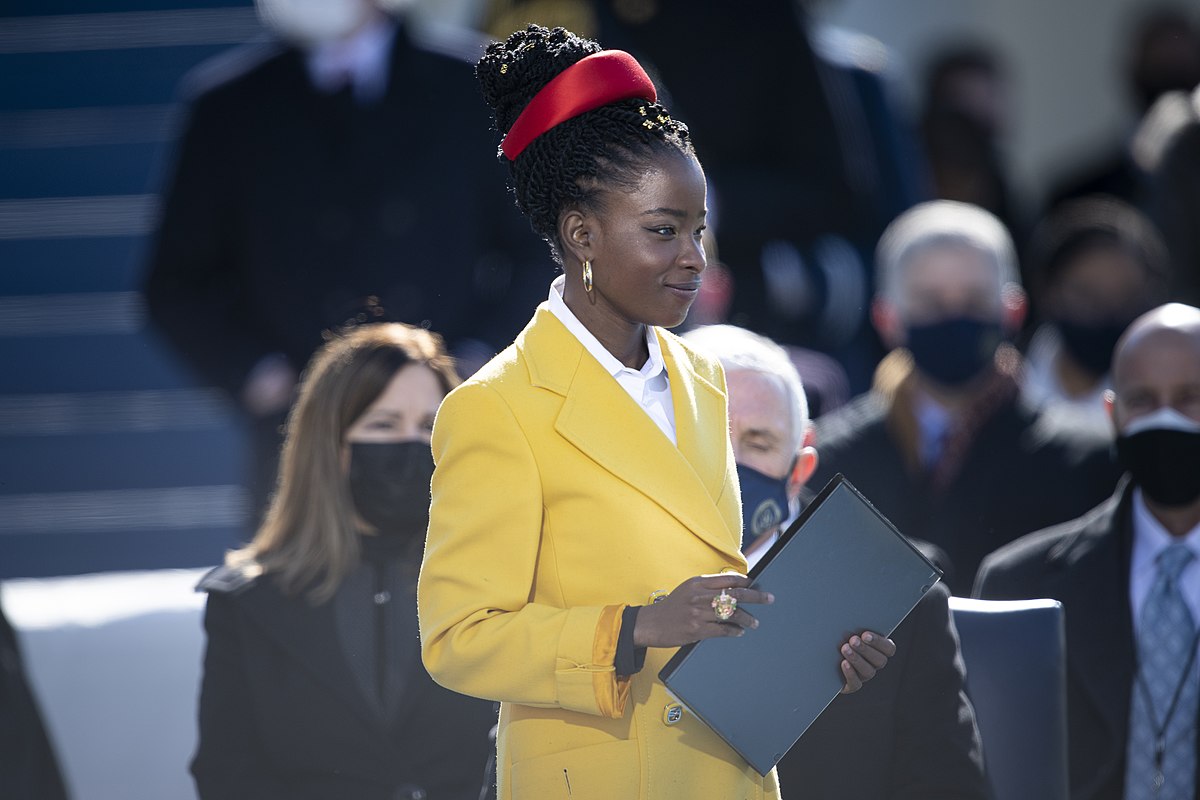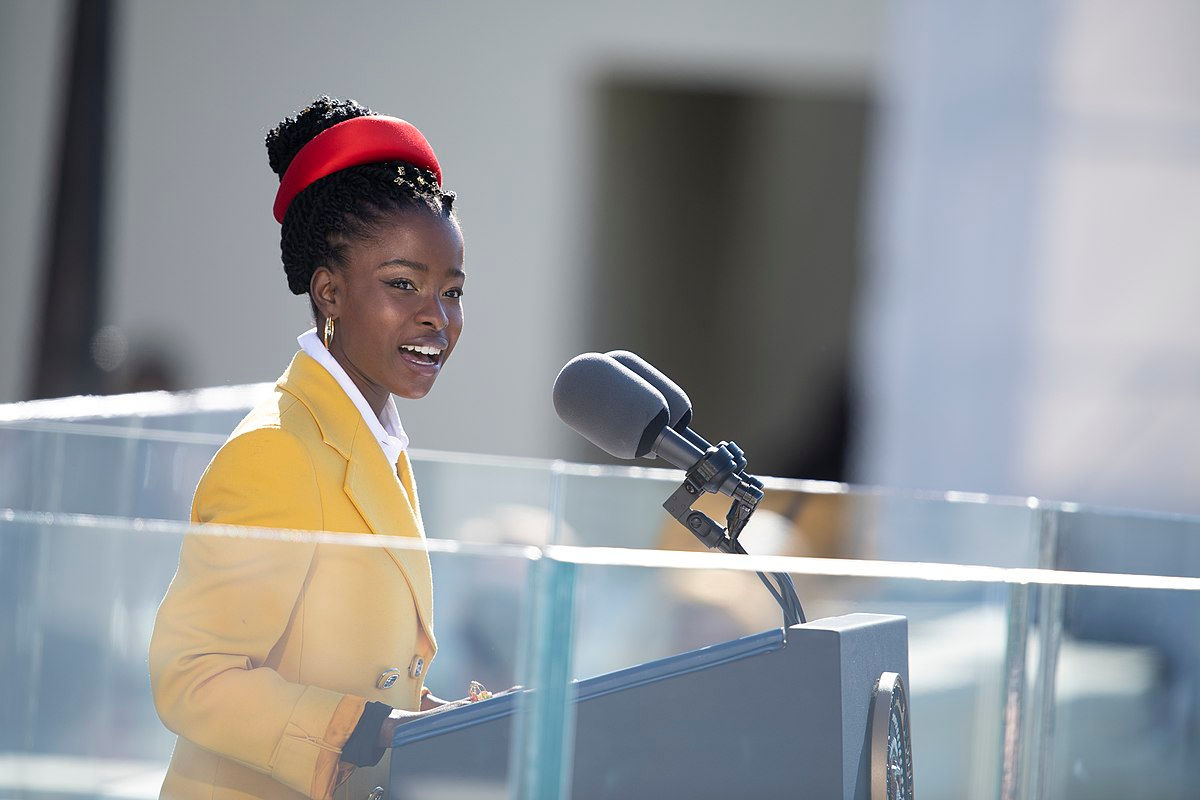Climbing Towards Justice: Amanda Gorman’s Poetic Vision of the Nation
Amanda Gorman’s “The Hill We Climb” powerfully delivers ideas of social justice through uplifting assertions and visuals of a gorgeous landscape—synonymous to her dreams for our nation.
By Jesse Julian | February 2025

DOD Photo by Navy Petty Officer 1st Class Carlos M. Vazquez II DOD Photo by Navy Petty Officer 1st Class Carlos M. Vazquez II
Delivered as a spoken word poem at Biden’s presidential inauguration in 2021, Amanda Gorman’s “The Hill We Climb” uplifts the nation to pursue a just democracy and better country for upcoming generations. Gorman’s skillful free verse carries a tone of democratic eloquence with a vernacular that catches the ears of the general audience—she speaks directly at this crowd present at the inauguration. Her rhythmic mix of internal and end rhyme also carries listeners through the poem, steadily feeding her powerful insight. She sets the scene with an antithetical play-on-words: “what just is, isn’t always justice.” Later, she inverts the familiar Preamble of the U.S. Constitution when stating, “We, the successors of a country.” Gorman challenges traditional notions of justice and asks listeners to re-envision this pursuit moving forward.
The pursuit of justice requires the nation to contextualize it in regards to each human being’s diverse needs. Gorman strives for this commitment to each human in her alliterative phrasing of “all cultures, colors, characters and conditions.” Furthering this, justice is unattainable without our bridges and connections to each other, which constitute the founding blocks of our country. In her fifth stanza, Gorman extends Sylvia Plath’s famous fig tree metaphor from The Bell Jar to imply that each human’s individual future relies on the stable formation of our collective nation.

While the first half most directly addresses the need for racial equality and social justice, the second half reflects on the successes of activism and change through rich environmental imagery. The end of “The Hill We Climb” reflects this descent from a tumultuous battle—from a difficult hill that our nation must climb and succeed over. Gorman addresses the determination of mankind in the face of turmoil through the use of chiasmus, claiming the superiority of “us” over catastrophe: “while once we asked how can we possibly prevail over catastrophe, now we assert how could catastrophe possibly prevail over us.” She performs a sweeping acknowledgment of the diverse lands our country encompasses through vivid imagery, listing off the “golden hills of the West,” the “windswept Northeast,” the “lake-rimmed cities of the Midwestern states,” and the “sunbaked South.” Her use of environmental landscapes envisions and embraces a sense of common responsibility from each region to the preservation of nature. The natural world physically represents our nation, an important truth that Gorman powerfully reminds listeners of when calling upon them for action.
Gorman’s work utilizes rhetoric that intertwines environmental justice with racial justice—a topic that Schiller addressed at a similar time, during the Environmental Racism Summit and “Challenging Environmental Racism” Event in the spring of 2021. Justice requires interdisciplinary efforts towards combatting structural weaknesses and vulnerabilities, which Gorman beautifully embodies through her activism and poetry.
Listen to "Hills We Climb" on TED
Sources




